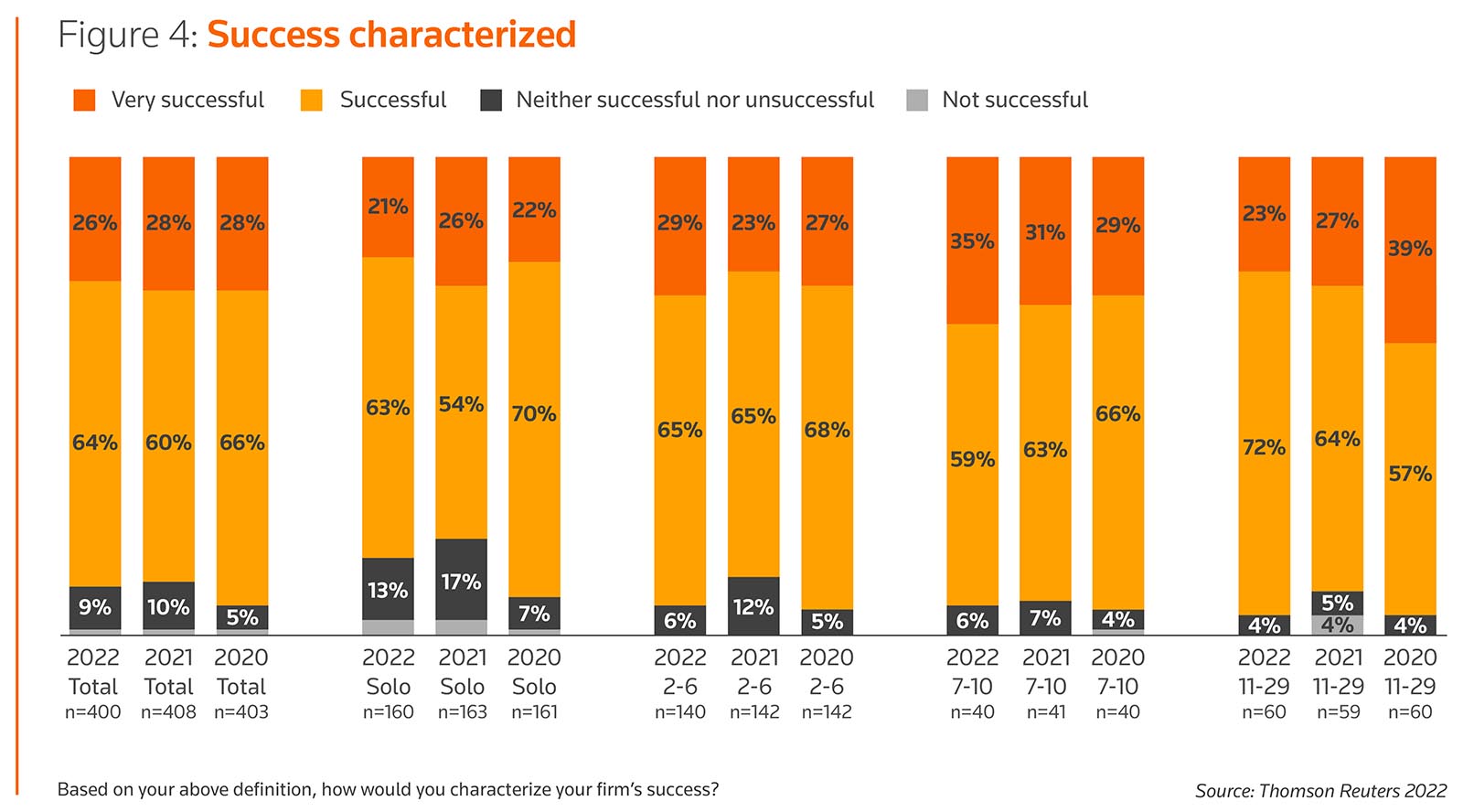2022 Report on the State of U.S. Small Law Firms: Five Takeaways

Small law firms are increasingly optimistic about their growth outlook, according to the 2022 Report on the State of U.S. Small Law Firms Thomson Reuters. The report found small law firms anticipate challenges ahead yet expect growth over the next 12 months and next three years.
Legal Current shares key takeaways from the report, which found small law firm lawyers’ expectations for growth are higher across the board this year.
- Nearly six in 10 lawyers expect growth over the next 12 months. Areas where they anticipate growth include revenues per lawyer, billable hours, and profits per lawyer, representing a more positive outlook than in the previous year’s report. Small firm lawyers also expect high-to-moderate growth to continue over the next three years. And they feel they’re building on an already strong base: 90% of small firm lawyers rate their firm as either successful or very successful.
- Lawyers rate administrative tasks that take time away from practicing law as their number-one challenge. This has been the case for the past several years, and small firm lawyers now say they spend only 56% of their time – barely half of their day – practicing law, down slightly from two years ago. Other top challenges are acquiring new client business and cost controls.
- Small firms are addressing some of their most significant challenges. In 2020, getting paid by clients was rated as a significant or moderate challenge by nearly two-thirds (64%) of lawyers. In response, many firms took steps such as increasing retainers; improving payment collections; and accepting electronic payments, such as ACH payments and debit or credit cards. In 2022, only 54% of small firm lawyers rated getting paid by clients as a significant or moderate challenge.
- Small firm lawyers consider their primary competition to be law firms of similar size. Significantly larger law firms competing for the same clients are the second-most commonly mentioned competitive threat. Yet the report notes this presents opportunities as clients of larger firms may increasingly seek more cost-effective alternatives for quality legal work.
- Competition also remains strong from “do-it-yourself” legal websites. Sites that provide legal information and forms pose a challenge to small law firms, which may need to improve efficiency and customer service to compete with these offerings.
Download the report for more insights.